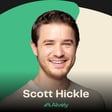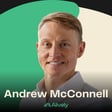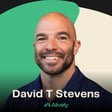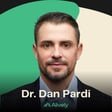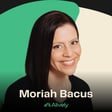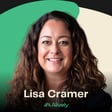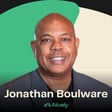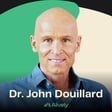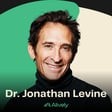Foundations of Aging Well
00:00:00
Speaker
The aging you want tomorrow begins with, you know, really the choices you make today. you know, the loss of independence that you, you know, start at 80. Well, it didn't start at 80. It started at 30. The Alzheimer's that came on at 70 didn't start at 70. It really started at 40 with the lifestyle habits and so forth. The heart attack at 50 started when you were 25.
Podcast Introduction
00:00:27
Speaker
This is the Home of Healthspan podcast, where we profile health and wellness role models, sharing their stories and the tools, practices, and routines they use to live a lively life.
00:00:41
Speaker
Jamie, it is an honor and a privilege to have you today on the Home of Healthspan. I can't wait to share what you're up to with our listeners. But before we jump in to your background, everything you're currently doing, how would you describe yourself?
Meet Jamie: A Health Enthusiast
00:00:55
Speaker
Well, Andrew, thanks for having me. I will tell you this. You know, I'm an active, I'm certainly a lively health educator. I've been doing this for 40 plus years. And it's funny, you know, my my enthusiasm hasn't wavered.
00:01:10
Speaker
in all those 40 years. And it's my, enthusiasm is unparalleled. And I believe that, you know, to me, I was put on this earth for, for a purpose and that was it. And to influence people with their health through proper nutrition, you know, mild forms of exercise and do it in a way that changes lives one body at a time.
00:01:28
Speaker
And, uh, I was been blessed with this and, uh, I have to tell you, it's, it's been very gratifying, but I love the the spirit of a lively. I mean, that's what it's all about.
00:01:39
Speaker
And, uh, helping millions of people and we've done it. And it's, it's, it doesn't matter if it's one or a million, Andrew, it's still the same. Yeah. yeah I mean, it's one millions of times basically. And, and you really, you really have done it consistently for decades.
00:01:55
Speaker
Uh, you know, I think lot of listeners would recognize you from the eight minute abs, but I actually, we said when we started, right, most listeners know we work through the five pillars and kind of cover what you do.
00:02:05
Speaker
And we assumed we would start with fitness, but so much of what you just talked about was about your purpose. and And what drives and the connection with your clients and the people
Purpose and Social Connections
00:02:15
Speaker
you impact. So I'd actually love to start there because that's often where we end, but that's where you started. And I think it's so important, especially as we age, especially as we're entering a period of loneliness, of people staying on social media versus socializing.
00:02:32
Speaker
Can you talk a little bit about how maybe your thoughts around that have shifted over the years?
Lifespan vs. Healthspan
00:02:36
Speaker
Well, I can tell you, you know, when you start off at 25, your, your ideals are one thing when now I'm 64. And so I've seen the shift of, you know, basically trying now to say, okay, we want to lessen the gap between our, our lifespan and our health span.
00:02:52
Speaker
And there are certain avenues that you have to take. And, you know, to me, if you don't make time for your wellness, you're going to be forced to make time for your illness. And, and so there's, there's definitely steps. And I, I, to me without more important than anything, it's, it's routine and it's routine over motivation.
00:03:13
Speaker
And, and I see that in everyday lives. and I
Daily Routines for Wellness
00:03:17
Speaker
believe in rituals. You know, I believe in rituals. I do a ritual every single morning. I i do my, my pushups, my plank and my squats. I do 25 squats every day. And it doesn't sound like a lot, but that's, you know, it's 750 for the month.
00:03:31
Speaker
I do a minute worth of, of planks, which for your abs, you have a slimmer trimmer, tighter waistline. I do, you know, again, if you do one minute, that's, that's think about that's 30 minutes throughout the course of, of a month.
00:03:43
Speaker
And then I do 50 pushups. Okay. So you multiply that out. It's 1500 pushups. So I, I believe in these, these smaller steps, these daily victories, and it doesn't have to be just nutrition or fitness oriented. It could be the thoughts, you know, at first it it has to come up from here.
00:04:00
Speaker
And so I see that. And then when I see, you know, even in in friends that I have who have isolated themselves away from from people that maybe we were going through high school with in college and all of a sudden they're doing their own thing. And all i I see that they're not as happy because you need that interaction.
00:04:20
Speaker
And if you don't, I'd say you better get to it now because it's not too late. It's never too late to do this. And, you know, to me, you know, people don't stop exercising because they grow old.
00:04:31
Speaker
They grow old because they stop exercising. And I think that's a real important thing because I believe
Active Living Philosophy
00:04:38
Speaker
in movement. It doesn't have to be formal, formal exercise. As you know, Andrew, living in down there, um I just wanted to move.
00:04:45
Speaker
And there's, there's a thing that we did. In fact, I brought this up only because if you want to live, move, that was a title by Jack LaLanne. and And we do everything in the spirit of Jack LaLanne. And I wrote this with his lovely wife, who is 99, Andrew, 99, God bless her, Elaine LaLanne.
00:05:06
Speaker
And it was, it was, the thing was, yeah there was Jack's title. If you want to live, move, put the boom back to boomers. But It was based on the philosophy of Jack Lillane. and And Jack was all about, obviously, it was about fitness, about nutrition.
00:05:19
Speaker
But it was the spirit of his his essence of trying to teach people the right way to have a ah healthy lifestyle. And again, it didn't just mean more you know bicep curls or or eating a a carrot stick or celery stick.
00:05:33
Speaker
He wanted to have that that healthy lifestyle mentality for people and not a diet mentality. yeah And so I look at people and I look at you know friends and family and associates. I said, you know what?
00:05:45
Speaker
you You want to get lean if that's your goal and objective?
Realistic Fitness Routines
00:05:48
Speaker
Go follow a lean person around. It comes down to their habits. It's cooking and eating and shopping and fitness.
00:05:56
Speaker
But more importantly, it's thinking habits. They think like a lean person. They don't have this diet mentality where you have to have an all or nothing mentality. That's not what this is about. You know, it's real. I always said I want to do a program for real people who have real jobs, real schedules, real families, real homes, but they still want real results.
00:06:16
Speaker
So you have to do something that's always important. baseline doable. You know, it's funny. That's how we actually did the whole idea of eight minute abs because Andrew, that was, let me think, that was 1994. And then we released it in 95. It's 30 years ago, but it was the idea that, you know everybody, Richard Simmons and and Jane Fata were doing an hour program. Right.
00:06:40
Speaker
And, but we're still having people probably, you know, probably 95% of the population was doing nothing at all. And, you know, time was the biggest factor. And we said, well, geez, let's do something that doesn't take a lot of time, but then gets into the idea that it was the the hook.
00:06:55
Speaker
Cause we didn't say, you know, do it just eight minutes. There's 1440 minutes in a day Let's start you off with eight. If you have more time, do 16, 24, 32. But you had to get these couch potatoes doing something.
00:07:08
Speaker
And that's how we got them to to to get active. and And that was the thing that that really, i think, catapulted us from this time oriented aspect of programming.
00:07:19
Speaker
And I think it it worked because, you know, there's a lot of people that did it.
Exercise Intensity vs. Duration
00:07:23
Speaker
Yeah, I mean, I'd love to come back to that because you started about yeah your routine when you start the day, right? That it it sounds very light, but it compounds over time. And i think back to a couple of our guests, ah Dr. Torkel, who wrote The Pulse Cure, he described that the...
00:07:41
Speaker
Extended life expectancy from 90th percentile VO2 max versus 50th is marginal, but 50th versus 10th percentile is 10x, right? like It's a massive difference.
00:07:52
Speaker
And so a lot of people have this mindset or JJ Virgin, same with the the idea of these exercise snacks. yeah And the benefit of doing just 10 minutes of vigorous movement a day reduces all cause mortality by 50%.
00:08:05
Speaker
percent but Just 10 minutes. So is it as good as 60 minutes? Maybe not. But that extra 50 minutes is not nearly as impactful as that first 10. And so I love how you're positioning it of it's not what the best case is. It's do something. And what is that something for you? So it sounds like, you know, i can start the day. I know I've gotten my squats, my pushups, my plank in.
00:08:27
Speaker
I have a great baseline. Whatever comes from here, it's gravy. i'm I'm good here. And so how how do you help people find out what what that
Muscle Maintenance as We Age
00:08:35
Speaker
is for them? Because they they may come at different points, right? They may have just had a surgery. They can't really do squats or get down in planks. So how do you help people figure out what is my baseline that gets me for the day?
00:08:46
Speaker
Well, you know, it's a great point. and And I have to tell you you know, you talk about, um you know, people, you know, I think what happens is with motivation and stuff, I think because they're bombarded with such information out there, it's overload.
00:09:00
Speaker
It is absolutely overload. yeah And so they don't know where to start. And I just said, we start, start just moving. Okay. But, you know, we said, Eight minutes. It's not just any eight minutes. You know, more is not better.
00:09:14
Speaker
Better is better. I tell people this, especially as we age, you know, there's something that happens to your body. It's called sarcopenia where you lose muscle tissue. It's muscle leaking. That's completely opposite of what we want.
00:09:26
Speaker
And so when I tell people that, you know, especially women, you you start losing muscle tissue rapidly, you know, after the age of 30, you lose 3% to 5% per decade. Well, that adds up very quickly when you start to get in your 60s.
00:09:40
Speaker
And so you know that same amount of calories that are coming in for a female they're wondering, how come I'm getting a little more lumpier and bumpier in certain areas? Well, your metabolism has dropped because your muscle tissue is has decreased.
00:09:54
Speaker
And so it's like, okay, let's rev up that metabolism again. Let's put on lean muscle. I think what people think, well, you gotta spend two hours a day in a gym, or you gotta, you know, again, you don't have to do that.
00:10:06
Speaker
You can use your own body's resistance, you can have bands, you can do whatever it is to put an overload to your system. And but just start off and a little bit like you said, snack size, JJ, she's great.
00:10:18
Speaker
Is that snack size version? What's the same ideas as the eight minute program that we did? But it was the idea of how do you implement that in that morning ritual that I do?
Psychological Benefits of Routine
00:10:28
Speaker
You're right. It's more psychological than physical.
00:10:30
Speaker
Physical is nothing. But it it it catapults me into a healthy regime right off the bat. Right off the bat, I start because I know I've done something good for me. So psychologically and spiritually, that makes sense to me because I don't care how bad the day can get. I know I'm doing something good for me. And it didn't take a lot of time to get me into that mind space.
00:10:51
Speaker
And that's what you want. The aging you want.
Long-term Health Impacts of Habits
00:10:54
Speaker
Tomorrow begins with, you know, really the choices you make today, Andrew. And I'll tell people this, you know, the loss of independence that you, you know, start at 80. Well, it didn't start at 80. It started at 30.
00:11:07
Speaker
You know, the the Alzheimer's that that come on at 70 didn't start at 70. It really started at 40 with the lifestyle habits and so forth. The heart attack at 50 started when you were 25.
00:11:19
Speaker
So it's this idea that, you know, you've got it implement a lifestyle that's that's doable. Number one, and based on your goals and objectives, of course. Now, I don't deal with a lot of people who are in the marathon running or bodybuilding.
00:11:34
Speaker
I deal with people that are everyday people that want to live longer, look younger
Empowerment Through Small Victories
00:11:39
Speaker
and feel better, especially boomers, because those are the three elements we want and need and desire.
00:11:45
Speaker
i can tell you this. If you tell people who are sitting on the couch and all of a sudden you tell them, well you got to move an hour a day, it's not going to happen. It would have happened by now.
00:11:56
Speaker
So, so just that alone. So the idea of, of mentally placing that can do spirit into somebody it's empowering. It empowers them.
00:12:07
Speaker
And that's where you, you, you, you get them started. And then the light bulb goes off in there and said, I can do this. Even though I'm in a wheelchair, I can do upper body movement. I'm getting stronger. I feel better.
00:12:19
Speaker
And like I said, so important, the empowerment aspect to this. And that's sort of a page book right out of Jack LaLanne's philosophy. And Jack LaLanne Andrews, you know, was the godfather fitness, but he had that delivery.
00:12:32
Speaker
People related to him, that connectivity had with his audience for 33 years on TV was that he was the voice of reason. He wasn't over on one side or on the other with his, you know, with the idea of, you know, cockamamie, you know, fads.
00:12:49
Speaker
was straight down the middle, but he just meant consistency beats intensity any day of the week. Get out there and move. Start something. OK, you're going to feel better. You're going look better. And that's what this is about.
00:13:01
Speaker
But but again, routine, routine over motivation wins every single time. and And that's why I think we've, you know, kind of positioned ourselves, especially with the boomers.
Preventing Muscle Loss
00:13:12
Speaker
Yeah. And I mean, it makes a lot of sense because it is consistency that leads to long-term transformation. It's not one week of intensity that falls off. So dialing it in, that overload for one person, maybe 10 chair squats is where they start because you know they have bad knees, they have they have to come up for it. that You brought up a couple of things that I do want to flag for our listeners, right? That sarcopyne Pemia over time and the 3% by decade muscle loss. I believe the recent research was showing that is not destiny.
00:13:42
Speaker
Like it's actually associated with lack of movement. And so we lose it because we're not using it. And back to the book, you have to move your body. These chairs are relatively recent in human existence, right? Most of humans never had a chair.
00:13:56
Speaker
If you go back 250, you were moving, you had to squat, you were moving your body. We didn't have desks. We were out doing things. You're talking about vitamin D. We were out in the sun. You know, this was how we lived. right And the, the idea that, and ah you probably saw this new book, uh, super agers where they, they went and they tried it. They assumed it was going to be genes and they couldn't find any genes for all this. It was all habits, all things completely in our control. And yeah,
00:14:22
Speaker
and so The small pieces, it's not about being the marathon runner, the Ironman or whatever. It's about continuing to move, make good decisions, ah have that consistency.
00:14:34
Speaker
and so you know, moving the body is how
Nutrition Essentials
00:14:37
Speaker
you don't lose it, right? Move it so you don't lose because we're we're mobile creatures. At the same time, I think maybe not everyone realizes on the nutrition side,
00:14:47
Speaker
What it takes, you go have a Frappuccino, maybe 375 calories, and what it would take to just go burn off those 375, not to mention all the other calories you eat during the day. So, you know, the the old adage, you lose ounces in the gym and pounds in the kitchen.
00:15:04
Speaker
How do you help people think through how they fuel their body, their nutrition? Well, I can tell you this. Because people would ask me, I say, I'm 64 years old, but I've never been overweight. I've never had obesity problem.
00:15:16
Speaker
Knock on wood, I've been very healthy. But I've studied it. it was It was things that then I've implemented it. And i always tell people, they say, well, what kind of diet do you on? I I'm not really on a diet. you know I'm half Italian. I can tell you this.
00:15:28
Speaker
I eat Mediterranean diet because it makes sense to me. But the idea of eating clean, lean, and green, Andrew, I tell people, look, limit the empty calories. You know, the sugar, you know, the average person gets 22 teaspoons of sugar a day, which is like 300 some calories.
00:15:44
Speaker
And you can't, you can't out train a poor diet anyway, as you slice it. So you really got to be mindful of that. And of course the inflammation, and I call it inflammation, especially when you get older with sugar, you know, what it does to your body. So you you really have to think about that and fried foods and so forth. But eating clean. Lean is lean protein.
00:16:04
Speaker
You need to have protein, especially as we age. and And we'll talk about that in a second. And the other one is green. I like to always have words that alliterate because it's easy for people to remember.
00:16:16
Speaker
so So again, clean, lean and green. Green is vegetables. mean So produce and and protein is where you want to be without a question. Limit the empty calories. But the idea of protein, and especially as we age, because it's so important to have that you know protein synthesis and so forth. So people say, well, how much protein you know should should I eat? Because that's always a factor. They get all these you know crazy you know ah numbers thrown at them.
00:16:42
Speaker
But I always say, look, always go to a dietician for all this information. They say, all right, listen, you want to be anywhere between 0.75 and one gram per body weight.
00:16:52
Speaker
That's kind of a fair number. Okay. So what if, if you're 120 pound person, that you need 90 120 grams of protein you're 150 pound person, it's 112 to 150. you're a 200 pound person, it's 150 to 200 grams a day. Andrew, you and both
00:17:04
Speaker
one hundred and fifty if you're a two hundred pound person it's one hundred and fifty to two hundred grams a day andrew you and i both know Listen, if you're 150 pounds to get 150 grams of protein, that's a lot of chicken breasts since chicken breasts is, you know, three ounces, 25 grams.
00:17:19
Speaker
So there you have to do something where you have to start thinking, all right, what, how do I do this for
Personalized Dietary Guidance
00:17:25
Speaker
breakfast? And you know, you've got you got have some protein, you know, whether it's, you know you can have 25, 30 grams of protein every meal and you'll probably get close to your goals.
00:17:35
Speaker
Yeah. But you got to be mindful of that. yeah Otherwise it's not going to happen. And, and so, and again, what does protein do? It increases satiety or the feeling of fullness. We want that because you're tricking your body because otherwise if you get hungry, if you eat carbs all day long, okay. And especially simple carbs, well, guess what?
00:17:53
Speaker
Your sugar level is going to go up. It is going to crash down. You're, you don't feel good, but you need the protein to, to even you out. Number one, But it's just, again, to to fuel your body, don't fool your body. OK.
00:18:06
Speaker
And it's so important to understand, you know, macronutrients, but not to the point where you've got to start figuring out on a calculator. You know, three to four ounces fits in the palm of your hand.
00:18:17
Speaker
That's portion control. So think about that. There's three to four ounces. You want beef? That's fine. But that's about 27 grams of protein right there in three ounces. A deck of cards or a bar of soap is three ounces.
00:18:29
Speaker
So you got you got to eat mindfully to get that in. Speaking of the mindfully, you know, there's certainly in a country where our obesity rates are over 40%. It's crazy.
00:18:40
Speaker
It's based more on lean master, your ideal body weight, right? So if you're 340 pounds, you're not targeting 300 to 340 pounds of protein. It's saying, hey, my target weight is actually 215. That's probably my protein goal, right?
00:18:55
Speaker
That is absolutely correct because you got it. Because if you're 300 pounds, you know, you've got to be chugging down a lot of ah muscle milk or something because you aren't getting 300 grams of protein in a day.
00:19:07
Speaker
ah this is It's not going to happen. But yeah, that's ah that's a way for somebody to actually look at that and go, okay. you know Even because somebody says, well, shoot, how many calories should I be having you know per day? So I follow the dietician's rule on that as well. And this is good for your listeners.
00:19:23
Speaker
you know They basically say you want your goal weight times 12 to get your calories. So for instance, let's say if you're 150-pound person, you want to be a 125-pound person, right? So you want to lose pounds. the day.
00:19:34
Speaker
we go one twenty five times twelve and you get fifteen hundred calories for the day That gives you kind of a baseline. So if your listeners out there, let's say they're 175 pounds, they wanna go down to 150.
00:19:45
Speaker
That's great, okay? So it's one, think about it, 150 times 12, do the math, it's about 1800 calories a day. Now, if you're a 250 pound person, you wanna go down to 200, it's 200 times 12 or 2400 calories a day. Now that gets a little more, especially if you're counting macros, it gets a little more realistic.
00:20:06
Speaker
And, and therefore you want to focus in on on those, but those are just baseline numbers that a dietician gives you depending on your of course, depending on your activity level. If you're an athlete, they always want you at one gram of protein, you know, per body weight, but you know, some people are not athletes. They're sedentary. So,
00:20:24
Speaker
You've got to be mindful of that. And depending on your goals, your objectives, um you know, but but there's there's a purpose to all this. And I think the idea is, you know, if if you don't do something, what do you think is going to happen?
00:20:39
Speaker
You know, if you do nothing at all for the rest of your life, what do you think
Small Changes for Big Impact
00:20:42
Speaker
is going to happen? There's heart disease, there's diabetes, there's you know high blood pressure, cholesterol, you name it. Forms of cancer, you know, ah dementia that happens.
00:20:52
Speaker
So you have to do something. and But make it realistic towards your goals and and you'll hit it. But but ah not doing anything is is non-negotiable.
00:21:03
Speaker
You have to do it. Yeah, I mean, I think there's, there are two things, right? There's the, hey, I'm fine today, not, and I'm just mortgaging my future and my future self. But I do think the fine today, in my experience, the the people we work with,
00:21:17
Speaker
We see, oh I'm fine. We start helping them in the smallest things. And I wow, wait, I can wake up feeling like this? so they thought they were fine because the fish doesn't know the water it's swimming in. It just knows this is the baseline. This is what normal's like.
00:21:32
Speaker
But they don't realize normal is not living a life of health and energy and vibrancy. And when you turn that on, it just, it's like ah the Wizard of Oz turning on Technicolor, right?
00:21:43
Speaker
All of a sudden, whoa, this is what's possible? you're not Kansas anymore. Yeah, exactly. And so do you see that? Obviously people come to you for a reason, like they have some trigger and maybe they think, Hey, I'm just investing in the future. But do you hear that from them as well as like, Hey, I thought I was doing this for 10 years from now, but wow.
00:22:01
Speaker
I mean, I'm feeling and seeing the difference today and it's huge. Oh, without a doubt. And I think, and in you know, the fact is, you know, we know physiologically if you start eating better, if you start drinking more water, if you get more sleep, you're going to automatically feel better.
00:22:15
Speaker
And of course, just moving alone, your body's meant to move.
Early and Consistent Fitness
00:22:19
Speaker
And so obviously we're not sharing this crazy information that's, that's you know, hidden secrets.
00:22:26
Speaker
It's out there and it's yeah it's just about implementing it. and And that's where I think, you know, we have to really keep you know honing in on that. And you because getting fit never gets old. Trust me, it doesn't.
00:22:37
Speaker
and And the old Jack LaLanne line, you know, was if you rest, you rust. And I believe that. And especially as you age. But, but you start now, don't don't wait till you're 50 and 60 to start.
00:22:49
Speaker
Do it now. i mean, that, that's where I think people have to be. And, and don't think you have to be, you know, have to go out and immediately run a marathon, go five minutes down, you know, down the street, get the mail, come back, do it
Nutrition: The 80-20 Rule
00:23:04
Speaker
again. i mean, it's, it's just that, again, it's that routine that builds and builds. I call it daily victories.
00:23:10
Speaker
You know, you're not going to, come down and and and constantly, you know, eat healthy ah most of the time. we but But the thing is, an 80-20 rule, that works. You know, i always tell people, look at your plate every single day.
00:23:23
Speaker
And you look and say, is this going to get me closer to my goal or further away? And if you can honestly say eight out of 10 times, you're getting closer to your goal, you're going to win, especially at losing. You're going to win at losing if you do it that way. And that relieves the idea of being the perfection mode, right? It's progress.
00:23:42
Speaker
You know, because somebody says you can't have a piece of chocolate cake anymore. You can't have a piece of bread. Pfft. What's the first thing a person wants? They want chocolate cake and don't let me stop. Yeah. Don't let me stop at one piece. Let me have two.
00:23:53
Speaker
You have the bread, you know, you don't have to have a whole loaf, have the bread, enjoy it and move on. And you don't have to be perfect every day. You were just talking about ah earlier about the idea of, of you know, and sugar.
00:24:06
Speaker
I tell people in my seminars, this is a great analogy for people to understand So Snickers bars, 260 calories, right? For a big Snickers bars. So some days, you know, you have an emotional day of eating, right? And people go through that, they you know, bad day at work, bad day, whatever, you know, they start eating. Okay.
00:24:24
Speaker
Now let's say have really bad day and you have 10 Snickers bars, right? When you and I both know, Andrew, that 3,500 calories equals one pound of fat. Okay. So you have 10 Snickers bars and it's my gosh, you go 260 calories 10, it's 2,600 calories.
00:24:39
Speaker
That's kind of a blowout for one, you know, one afternoon. But I've got to tell you what happens is in the big scheme of things. OK, so it was one bad day. You pick it up the next meal the next day. But what happens mentally?
00:24:52
Speaker
Oh, my gosh, I can't believe it. I blew it. I can't believe I ate 10 Snickers bars. What's wrong with me? Don't beat yourself up. You're going to have those. So what days? Pick it up the next meal, the next day, the next week.
00:25:05
Speaker
That's how you win long term. But it's the ideas, the mindset shifted. And the other thing real quick, I always do in my seminars say, you know what? You've got it. If it's a diet mentality, just change.
00:25:17
Speaker
Just do the edit EDIT. So think of food that way, you know, because everything with a diet is I can't eat this. I can't eat that. You got to eat less of this, less of that. I want you to focus on edit, meaning more, more fruits, more vegetables, more whole grains, more healthy oils, more lean proteins, more water, more fitness, more sleep.
Positive Focus in Diet
00:25:40
Speaker
That idea shifts. OK, it's more. You didn't tell me I got to eat less. I'm eating more. So that kind of thinking propels people to succeed long-term.
00:25:50
Speaker
This is what I try to explain to people too, right? Back to the, if you if you're doing a gram per pound of body weight, a protein, right? You're getting in these lean, good proteins that you enjoy. Find the ones you like. If you don't like salmon, eat chicken. If don't like chicken, go to be like, find what you like.
00:26:03
Speaker
And then if you're doing 800 grams of fresh plants, you're just not gonna be that hungry for other things. And you're gonna have your baseline of nutrients. So then you don't feel bad. It's like, hey, I want a Snickers bar.
00:26:14
Speaker
Cool, great, you did all this. You're probably not gonna want 10 of them, because you're gonna be pretty full. You might just have the one, yeah. Isn't that amazing? You're tricking your body, it's and it works. And then you start feeling better by, because you start looking, you're going to go, shoot, yeah, looking pretty good in there.
00:26:27
Speaker
Well, you have more energy, right? You don't get the crashes because you're fueling with what our body, know most of these things, when you talk about empty calories, humans never evolved to get that.
Returning to Natural Foods
00:26:37
Speaker
We've created these things in labs. If you go back to plants and animals, this is what our bodies evolved to process, digest, and get our energy from the sun passing through.
00:26:46
Speaker
Like that's the source of all our energy. Yeah. You brought up a couple of times getting more sleep. So, you know how do you think, how do you prioritize sleep? How do you structure it? What is your sleep routine?
Importance of Sleep
00:26:58
Speaker
I will tell you this, and and I'm probably guilty of it because this, I mean, I go to bed probably around 11, but I get up at five every morning, start the day off right. Boom. I probably don't get enough sleep, but I can tell you, I've, I've learned to live on that. But now that I've researched more and more,
00:27:15
Speaker
Sleep is it aids in recovery. And so, you know, you need it. You need it. And I don't care if you're 20 or 70, you need more sleep. And and so I think from a standpoint of what gives you better sleep, you know, there's things as say you don't drink ah water before you go to bed or alcohol or you don't eat three hours before you There's all these different things that we have the room cool, you know, have it dark.
00:27:41
Speaker
The bottom line is to me, if I get enough activity during the day, guess what? I don't care where I I'm going to sleep. I'm off. I'm off to the never, never land because, you know, your body says, okay, I've had enough.
00:27:56
Speaker
I need to recuperate. I need to slow down and then boom, I'm done. And so to me, you know, fitness and and and movement is the elixir and it's, it's, that's, that's what you need to, to help you age correctly.
00:28:11
Speaker
and And if you don't have those pillars that you were talking about, if if even one or one or two of them are out, you're not going to be as healthy as you want. So again, what are we trying to
Maintaining Mental Health
00:28:22
Speaker
do? We're trying to decrease the gap between our our lifespan and our health span.
00:28:26
Speaker
You want to be as healthy as you can for as long as you can. And if you cut things out that are important, like nutrition and fitness and sleep and and so forth and and mindset and and also the idea of you know this this connection you have with people,
00:28:42
Speaker
something's going to drop and you don't need it. And and so you've got to try to fit most of those things in on a daily daily basis. Make it a routine.
00:28:53
Speaker
Yeah, for sure. And so speaking of the routine, I mean, one thing that's kind of permeated all the pieces we've talked about is this mindset. So you talked about when you start in the morning, yes, it's about moving your body and the physical side, but it's as much about the mental side. Hey, I've i've gotten this in. I am moving my body. I've triggered these.
00:29:08
Speaker
Yep. I think a lot of people understand you can't eat healthy for a week and then just go fried foods and junk the rest of your life or go to the gym for a week and sit on your butt the rest of the time.
00:29:20
Speaker
But for some reason, it seems like a lot of times with mindset, we say, oh, well, I read this book, so I'm good. Or I went to this seminar, so I'm i'm good. And don't realize the ongoing work that mental health requires as well. So how do you work with clients to to get that mindset of not, hey, I can't have this, but here's what I am getting. Here's what I can do. Here's what I'm excited about.
00:29:40
Speaker
What does that look like? Well, I think the it is is, is you just look at it from a realistic standpoint. I always tell people, you know, it's it's the if you notice, if you go from like Thanksgiving to New Year's, Andrew, you know those six weeks, everybody's, oh, my gosh, you know, I've got to, you know, I got to get ready for the holidays, this, that.
00:29:59
Speaker
And I said, you know, New Year's is coming up. I understand that. But I don't care what you do in those those six weeks. It's what I want you to do is from New Year's to Thanksgiving.
Realistic Health Approaches
00:30:11
Speaker
It's those months I want to know what you're doing. So you have to look it and go, all right, you know, it's it's It's a realistic approach. and And the idea of of people that that think, again, all or nothing thinking is that I have to go out and I got to just do everything so perfect or it's not going to work.
00:30:30
Speaker
And I don't believe that. I believe that, you know, again, if follow the 80-20 rule and almost everything and you're going to succeed. And so when I when I have clients and actually I still have personal training clients that I've had for, you know,
00:30:43
Speaker
12 15 years that still come to see me they've heard this mantra over and over and they've succeeded because of that and there's going to be days where they're going to be as healthy as they want and then what they say it's a so what day jamie i just had a so what day and they just they go right into the next meal or the next day with a healthier attitude about food or about movement or about sleep or about you know did i get enough water today well Maybe you're on vacation. So it was it was less realistic to get in all your water because you're moving.
00:31:14
Speaker
It's OK. It's all right. and And so it's the idea of of the perfection mindset has to has to be resolved. And and once they have that, everything else can be implemented.
00:31:27
Speaker
Because but people say, well, yeah I don't have time to exercise. Don't you? Let's look at that. There's 1,440 minutes a day. I want you to get a piece of paper and your your listeners can do this. And split, when you say you don't have time, split your your day into thirds on a piece of paper.
00:31:41
Speaker
From breakfast to lunch, okay? i want to know what you're doing. From lunch to dinner, write down what your your daily routine is. And then from dinner to bedtime. And if you're telling me you don't have eight, 10 minutes, 15 minutes, 20 minutes to get your movement in.
Prioritizing Personal Time
00:31:57
Speaker
Well, then you have to prioritize something else because there's a lot of minutes in the day that you can fit in. And it's just not about, you know, I don't have time. You got to make the time and then don't cancel on yourself. I mean, Andrew, think about it.
00:32:10
Speaker
Most people who go to the doctors, they they never cancel on their doctor. they don't cancel their dentist appointment. Circle that, that program on your calendar. That's your time. Nobody gets it.
00:32:21
Speaker
It's on my calendar. Here's what I'm going to the gym or here's what I'm swimming. It is it is protected time. It is protected time. Nobody gets it. You're going to benefit by it immensely and you deserve it.
00:32:32
Speaker
You didn't cancel out the doctor. Don't cancel yourself. Yeah. I mean, the other piece on that, I think is one, sometimes we give it to other people that we know, right? They they call or you would do a meeting, but a lot of the times we're given it to Reed Hastings and Netflix or we're given it to Mark Zuckerberg and Instagram, right? And so I think once you do that kind of audit, you can also see, ooh, is this really where I want to spend my life? Is that the life I want to live?
00:32:57
Speaker
and And do I want to reallocate that time to something that's going to make me feel better? Without a doubt. and And that's, I think that's real life. And I just think that it has to be a shift.
00:33:08
Speaker
it's It's a renewal shift in their mind.
Sustainable Health Practices vs. Fads
00:33:11
Speaker
And because they're, you know, again, when you look at the internet and you look at all the the gurus out there and they're telling you, you know, you got to do this for six weeks or this for eight weeks.
00:33:20
Speaker
Well, you know what? Life doesn't work that way. There's a lot of but ah lot of months in there. So, you know, don't do things that, you know, to me, one of the clients just you know said, well, you know i can follow this for six weeks. I'm like, well, know, six weeks is nothing.
00:33:34
Speaker
You know, so so the idea is you got to you got to think about that when you start a program and say, well, can I eat like this for yeah everybody can do that for 30 days? Can I eat like this for 30 years? Well, then you got something.
00:33:46
Speaker
So, yeah. So don't cut out food groups, people. Don't do it. No, and and Jamie, I think that's ah a beautiful place to close because I think we live in a world of influencers that may have been around for four months or four weeks or four years even. And no one knows the long-term impact of what they're recommending and kind of these fads
Celebrating Jamie's Career
00:34:05
Speaker
and fly by night. Whereas you've literally been doing this for four decades.
00:34:08
Speaker
and delivering impact and the results are real. And anybody following you, looking at the comments, I mean, one of the first comments on one of your YouTube videos I saw was like, I've been following this beautiful man for 30 years, right? Like but people have been with you on this journey for decades and seeing real results.
00:34:24
Speaker
And so I really implore our listeners to check out more of Jamie's work. Thank you, Jamie, for all you've been doing and continue to do to help so many people live healthier longer. it's It's a pleasure. And, you know, the old saying is, you know, I always say it's, you know, I will not let age change me. I'll change the way i age.
00:34:42
Speaker
and And that's so true. So get up, fuel up and live it out out there, guys. So listen to Andrew. He's right on. and does it Thanks, Jimmy. Thank you for joining us on today's episode of the Home of Healthspan podcast.
00:34:55
Speaker
And remember, you can always find the products, practices, and routines mentioned by today's guests, as well as many other Healthspan role models on Alively.com. Enjoy a lively day.

